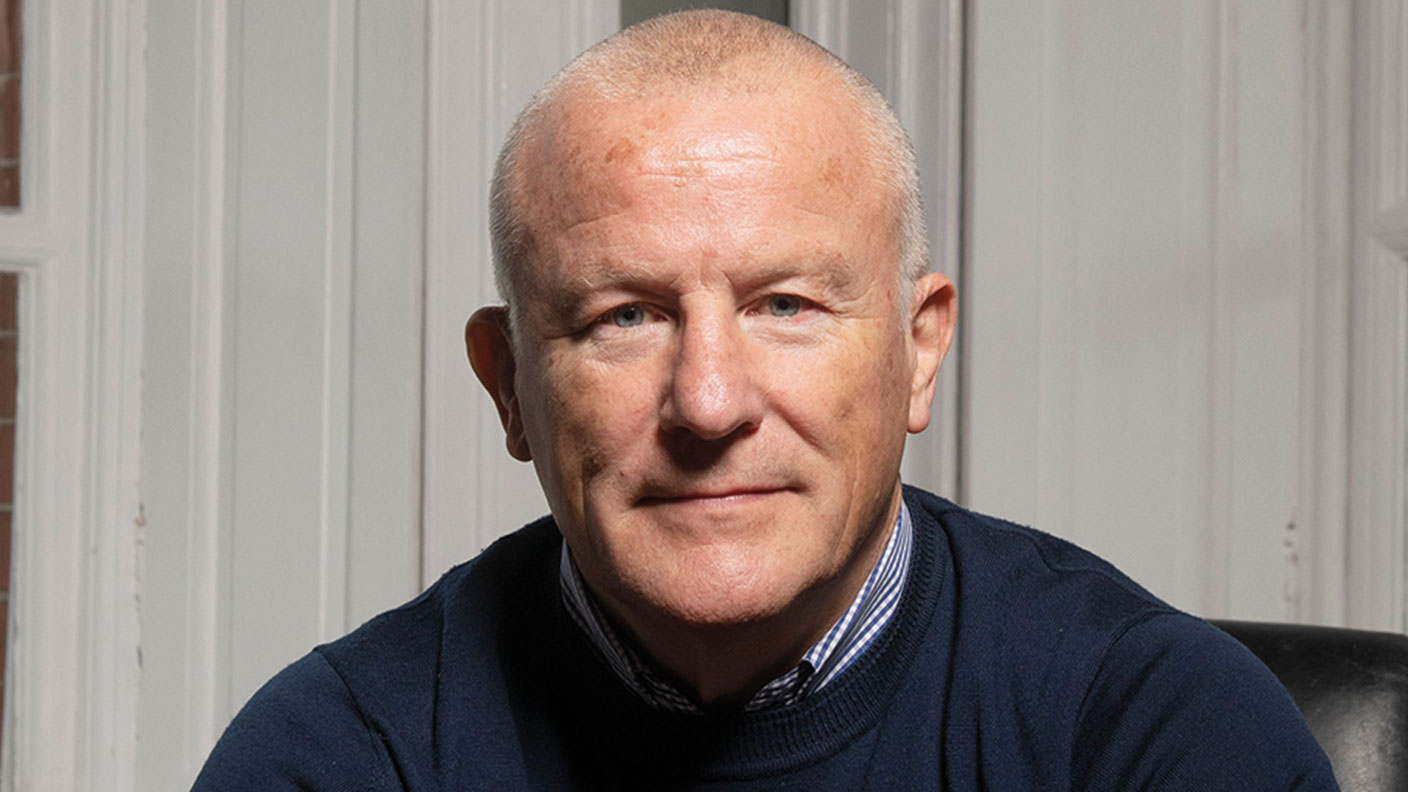Neil Woodford is buying more AA shares – I’d suggest you don’t follow him
Since listing 2014, the AA has been a poor investment. It generates cash, but it’s swimming in debt and business is declining. So, asks John Stepek why is Neil Woodford buying?

Get the latest financial news, insights and expert analysis from our award-winning MoneyWeek team, to help you understand what really matters when it comes to your finances.
You are now subscribed
Your newsletter sign-up was successful
Want to add more newsletters?

Twice daily
MoneyWeek
Get the latest financial news, insights and expert analysis from our award-winning MoneyWeek team, to help you understand what really matters when it comes to your finances.

Four times a week
Look After My Bills
Sign up to our free money-saving newsletter, filled with the latest news and expert advice to help you find the best tips and deals for managing your bills. Start saving today!

I'm not someone who is very interested in cars. I can change a tyre (though I haven't had to for years). Maybe a bulb (except they've made that a lot harder on newer cars). I can top up the oil and the windscreen wiper fluid. And that's about it.
So I have been buying breakdown recovery insurance on my cars for nearly two decades now. And it's been well worth it.
We've always been a single-car household, but nearly every one of those cars has required a call-out from roadside rescue at least once. Indeed, I'm pretty sure there was one year where we used it at least five times.
MoneyWeek
Subscribe to MoneyWeek today and get your first six magazine issues absolutely FREE

Sign up to Money Morning
Don't miss the latest investment and personal finances news, market analysis, plus money-saving tips with our free twice-daily newsletter
Don't miss the latest investment and personal finances news, market analysis, plus money-saving tips with our free twice-daily newsletter
On one particularly memorable occasion, I remember one poor guy having to recover my wife and I and our useless vehicle all the way from North Yorkshire to southwest Wales (it's a long story).
Why am I telling you this?
Because today we're looking at another roadside wreck the AA.
Should you follow Neil Woodford and buy AA?
The AA has not been a good investment. As Lex in the FT points out, anyone who bought the company when it listed in 2014 has now lost nearly two-thirds of the value of their stake. That includes poor old Neil Woodford, who is rapidly turning into the ultimate contrarian indicator.
Woodford now owns more than 15% of the AA, having bought more after its latest profit warning, which came out on Wednesday. But should you follow him? Well, let's have a look.
The AA has been struggling for a while. The former chief executive, Bob Mackenzie, left in slightly odd circumstances last year after an alleged punch-up in a hotel bar. (It happened during a strategy meeting with senior executives, so on second thoughts, perhaps the punch-up isn't that surprising). Naturally, that took its toll on the share price.
However, there's a much bigger problem. The AA is a motoring services group. It has a great brand. It has a loyal (if dwindling) customer base. But this is a highly competitive market facing long-term decline.
Cars are getting more reliable. While I've used roadside recovery a lot over the years, the usage has definitely decreased over time. And that's not because my current car is any good compared to the others I've owned. It just happens to be less prone to breaking down.
Roadside assistance is increasingly commodified. I don't know about you, but for me, it's one of those things you buy via a comparison site and choose the cheapest one you can find. I've used a number of different providers over the years and they've all been perfectly good at their jobs.
Meanwhile, the AA is carrying a massive lump of debt, a leftover from the lovely private equity people who had their wicked way with the company then flipped it back onto the market in 2014.
So if you own the AA, you own a wonderfully cash-generative asset, but one that's in a declining business and comes with a massive mortgage.
And Wednesday's profit warning was all about confronting that. So has it done enough to make the AA a buy?
The bondholders are in charge, and we're heading for a risky reinvention
Firstly, the dividend was slashed. It fell from 9.3p to 2p, and that will be it for the foreseeable future. The message there is clear: the bond holders are in charge here. Probably the only reason they didn't ditch the dividend altogether was to spare Woodford's blushes and avoid making it seem like an emergency situation, rather than a chronic one.
Secondly, the company is going to increase investment. So rather than running down the existing business, the goal is to reinvent it for the 2020s and beyond. That means lower profits today, but hopefully more jam tomorrow.
That's admirable and we all want companies to invest more in their workforce and technology and all the rest of it. However, it's risky. Dividend cuts and turnaround plans can be a good opportunity to buy a company. It's often the point at which things stop going from bad to worse. But here I'm not so convinced.
For a good turnaround opportunity, I want to see a fundamentally decent business that has grown complacent, or invested too much in ambitious over-expansion (cyclical industries do this all the time) or dud brand extensions. I also want to see some progress already being made.
That's not the case here. The AA is basically looking at a blue skies reinvention. The company realises that somewhere in the future lie even more reliable cars (electric cars I'm told, though I'm willing to be corrected are more reliable and easier to fix than combustion engines).
There's also the increasing danger that self-driving cars will hit the roads, which could entirely destroy both the current ownership and car insurance models. We'll all be summoning taxis with our phones, and the only people who will actually own cars will be big companies. You'll order a Google taxi with your Pixel phone, or a Tesla with your iPhone, or whatever.
In short, the AA is facing a wave of technological disruption along the lines of that faced by the music, publishing and broadcast industries over the past two decades.
Its big idea for tackling that, and getting younger members on board, is to encourage users to install a telematics device and app (Car Genie) that will produce data, predict breakdowns before they happen, and hopefully make it easier for the AA to sell other services including insurance to existing members.
Can it do that?
The execution risk here is massive
Well, here's a thing. I went to the AA website (as someone who doesn't know much about cars and the related telematic tech indeed, perhaps the sort of customer the AA might want to target) to try to learn a bit more about the Car Genie app.
There was a link that said "How to set up Car Genie". I clicked on it, and the first step said "Check the device is compatible with your car". I clicked on this link to check if my car was indeed compatible with Car Genie.
But instead, the link went direct to a relocation page that told me nothing about Car Genie, but did tell me that I could now buy AA products direct from Amazon.
Oops.
If this is going to be the flagship product, they need to be on top of these things.(Editor's note: and to be fair to them, the AA did contact us after seeing this story and have now fixed the error).This is a problem with having a good brand. You often get complacent. Marks & Spencer is probably the best living example of this in the UK.
A brand will only take you so far. You look at your core of loyal customers who shower you with praise and you comfort yourself, even as new customers are drawn to faster, hungrier rivals, who do everything you do, without acting as though they're doing their customers a favour by even deigning to deal with them.
So overall, this sounds like an ambitious but risky plan, which is right at the start of its execution, with poor visibility as to the outcome.
It reminds me a little of Pearson's ongoing attempt to turn from being a publisher into a "provider of education services", the most visible outcomes of which so far, have been the now-predictable issuance of annual profit warnings, and the miraculous ability of the chief executive to hang on to his job.
Now, here's something to bear in mind: I don't have great expertise or inside knowledge of the breakdown recovery business or the telematics business or the motor insurance business. Those fall outside my "circle of competence", as it were. Maybe you work in one of these businesses, or supply them.
Maybe you are in a position to see an area here where the AA has a genuine edge. Maybe you can see something that I can't see, that makes the prospects of success far greater. If you do, please feel free to share it with us below.
But for me, this is a business plan that's based too much on hope for now. I'd be happy to keep an eye on the business and see how it's going during the next update, but I certainly wouldn't buy in now.
Get the latest financial news, insights and expert analysis from our award-winning MoneyWeek team, to help you understand what really matters when it comes to your finances.

-
 Should you buy an active ETF?
Should you buy an active ETF?ETFs are often mischaracterised as passive products, but they can be a convenient way to add active management to your portfolio
-
 Power up your pension before 5 April – easy ways to save before the tax year end
Power up your pension before 5 April – easy ways to save before the tax year endWith the end of the tax year looming, pension savers currently have a window to review and maximise what’s going into their retirement funds – we look at how
-
 Neil Woodford’s back – but has he really learned anything?
Neil Woodford’s back – but has he really learned anything?Opinion Disgraced fund manager Neil Woodford is planning a comeback. But he doesn’t seem to have learned much from his many mistakes. So why would anyone invest with him now?
-
 Neil Woodford’s back – but sometimes sorry isn’t enough
Neil Woodford’s back – but sometimes sorry isn’t enoughAdvice Neil Woodford’s funds blew up in 2019. Now he is on the comeback trail. But his apologies are unconvincing.
-
 Woodford investor? Your first payment is coming soon
Woodford investor? Your first payment is coming soonNews Private investors left stranded by the collapse of the Woodford Equity Income fund will soon be getting at least some of their money back. But they will have to wait a while longer to see how much more – if any – they will receive.
-
 Neil Woodford continues to cast a shadow over his successor at Invesco
Neil Woodford continues to cast a shadow over his successor at InvescoFeatures Mark Barnett, former star manager Neil Woodford’s successor at Invesco, has applied the same formula, and is struggling.
-
 Is it time to buy Patient Capital Trust?
Is it time to buy Patient Capital Trust?Features Neil Woodford’s Patient Capital Trust has been taken over by asset manager Schroders. The share price has surged - but should you buy in? John Stepek looks at the trust’s prospects.
-
 Neil Woodford: no silver lining for his investors
Neil Woodford: no silver lining for his investorsEditor's letter Neil Woodford made every mistake it is possible to make as a money manager. And his investors have been stiffed. But however wrong it all went, Woodford never stopped taking the fees.
-
 Woodford’s empire collapses – what happens to his investors now?
Woodford’s empire collapses – what happens to his investors now?Features With Neil Woodford getting his marching orders and his funds being shut down, John Stepek explains what it means for his former empire, and for those with money locked in.
-
 The fall of the house of Woodford – and what it means for your money
The fall of the house of Woodford – and what it means for your moneyFeatures Neil Woodford has been fired from his Equity Income fund, which is now being wound up. John Stepek looks at how he got into this mess, and what it means for investors.